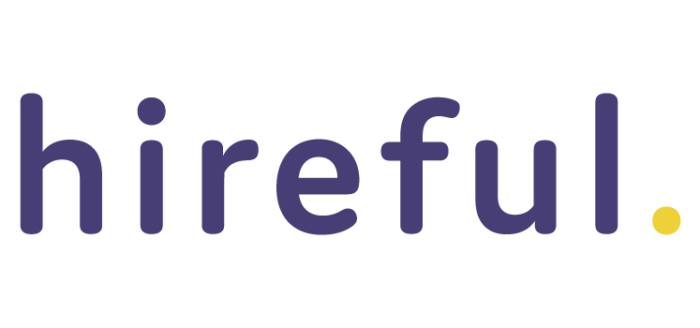
Q&A Series: Angel Gutierrez, Internal Tech Recruiter at Moo.com
With sights firmly set on disrupting the trillion-dollar global print industry, London-based tech company, Moo, is one of the fastest-growing print businesses in the world. And, with over 500 employees in six locations across the UK and US, this tech-savvy, design-led company knows a thing or two about recruiting tech talent to support its rapid expansion.

Hiring Hub spoke to one of Moo’s in-house recruiters, Angel Gutierrez. With over five years recruitment experience under his belt, one of those at Moo, Angel plays a crucial role in identifying, attracting, nurturing, and acquiring the best tech talent in the market on Moo’s behalf, and we wanted to find out how he does it…
What does your recruitment process for tech hires look like at Moo?
It’s evolved quite a bit, we now have up to three to four stages. It starts with a 20-minute call with myself or one of the other internal recruiters. We go over what Moo is all about, explain the tech team structure, talk about the key people in the team, what’s required from them, and any projects they’re currently working on. Then the last five minutes would be spent asking technical questions that the hiring manager will have pre-determined with me.
After that, candidates are invited to do a 30-min call with one of the engineers, who typically probe further the technical questions asked during the screening call. If they make it to the next stage, we’d send them a tech task; these typically take four to five hours to complete, but we just ask them to spend an hour on it, using common sense and their best practices. We also ask them to think about scalability and performance.
If we can see all the standard fundamental areas are covered, then we invite them in for a face-to-face interview and that’s it.
Why have you structured it that way?
Because I can easily screen-out anyone that’s not suitable quickly. Or put a question mark on the ones I’m not 100% sure of. Then we have the engineering call, just so that we can further screen-out those people that can bullshit, or that are great at doing tasks but aren’t good at explaining things through. All good engineers are people that are good at explaining things through. All quality engineering includes people that can break things down into simple terms. When we recruit junior engineers, we always get them to sit down with myself and the other recruiters, and ask them to explain their processes and projects – it gives them an opportunity to develop that skill of breaking things down.
The next step, our tech task, is designed to see if they’ve got the fundamental skills. So, for the tech side we use pair programming and test-driven development, which is when they write their tests before they actually starting coding. It keeps them aligned, and ensures the code is really clean and well structured. So, basically, it doesn’t hurt your eyes when you look at it!
When the candidates come in for their face-to-face interview, we’ll open up a laptop with their tech task, push it over to them and ask them to quickly explain their code to us. Within the first five minutes you’ll be able to tell if they’ve copied it offline, because if they wrote it, they’re able to articulate their solution and explain the code really well.
If they pass the test, then we don’t really worry about their coding capabilities. Our focus then switches to the scalability of the code they wrote, and any performance issues. It’ll be the engineer that judges this. A crucial aspect of our recruitment process at Moo, is to keep one engineer tied to the candidate throughout the whole process.
A crucial aspect of our recruitment process at Moo, is to keep one engineer tied to the candidate throughout the whole process.
What’re the benefits of keeping an engineer or hiring manager tied to a candidate throughout the process?
Well, it keeps them emotionally tied to the candidate, so they’re quick to give us feedback. And it also gives them a good understanding of the candidate’s approach and technical capabilities throughout the whole process.
Whereas, if it’s a different engineer at each stage, then they’re not familiar with the candidate, and people have varying degrees of coding ability, so one of our hiring managers could judge a candidate purely on their test results without ever having spoken to them.
Which, from all the back-end languages out there, do you think is hardest to recruit for and why?
The one we’ve struggled with the most is Java, and that’s pretty much just at the senior level. I can find great people, and bring them in for an interview, that’s not the problem. It’s the competition. With all these billion-dollar startups and Fintech companies it has become almost impossible. They just throw money at candidates, and it’s something you can’t really fight with or compete against. Looking at it from a candidate’s perspective, if they get an offer from somewhere that’s really cool, new, and it’s got a great culture, it’s nice. But if they get a start-up that’s offering £20,000 more on their basic salary, it’s a no brainer. (To find out more about industry salary average for IT & Tech, check out our latest salary guide.)
The one we’ve struggled with the most is Java. It’s the competition. With all these billion-dollar startups and Fintech companies it has become almost impossible. They just throw money at candidates.
So how do you go about attracting the best developers in the market when you’re competing in against the tech giants in London?
This is one of the main reasons we keep the same hiring manager across all stages of the process. Because the candidate becomes familiar with them and hopefully they develop a bond. Whenever we get the candidate in, we always give them a tour of the office, have a coffee and an informal chat. However, the biggest strength for us is that we move quickly. From the moment someone applies for a role, to them coming in for a face-to-face, if they’re successful, it usually takes around a week and a half. Two weeks max. As long as you make it quick and you keep that relationship, communicate through it, you’ve got an advantage over the competition. Some companies can keep candidates holding forever and that’s how you lose them.
…we move quickly. From the moment someone applies for a role, to them coming in for a face-to-face, if they’re successful, it usually takes around a week and a half. As long as you make it quick … you’ve got an advantage over the competition.
Beyond competition, do you face any other specific challenges when attracting and recruiting tech talent?
I’d say the main one is the overall packages other companies can offer. It really is a candidate-driven market, especially in technology. So, whatever one company can offer is what everyone else has to then strive for.
Which recruitment channels are most effective?
I hate to say it, but LinkedIn can be useful. Job boards are something we don’t really use. Github is also pretty decent, just because you can see their code straight away and check out their LinkedIn profile from there, so our managers can easily review prospect candidates and it makes the whole process a lot quicker.
Are there any key qualities you look for in developers? How do you identify them?
I think the main one is the ability to break down the tech into layman’s terms. So, can they explain their code to non-technical folk like me?
The next biggest quality I’d say is: are they aware of any new interesting technologies or systems, or simply just have an awareness of what’s going on. Are they incorporating new tech into their work? Or if not, are they practising tech outside of work, for example with the likes of mini projects, meet-ups, courses or even workshops.
Another major quality is passion. People have to be passionate about what they do, even if they’re not passionate about the project that you’re putting them on, at least they like what they do. So, I’ll always ask them about their past projects, how they got into it and why they enjoyed it. You can find out a lot about a candidate when they talk about their passions.
I’ll also always ask a candidate about the worst time they’ve had when working on a project and as part of a team. This always gives a clear idea if they’re just bullshitting you about all the great stuff they’ve done or if they’re telling the truth.
Are there any benefits you offer at Moo that you feel are particularly effective when it comes to recruiting top tech talent?
In term of the benefits, we’re quite flexible in terms of working hours. So, people, for example without kids, can rock up very early in the morning and leave early in the afternoon, or vice versa. We also let employees work from home if they prefer. Flexible working hours are pretty common these days. But what give us the edge is that we also allow employees to work while they’re on holiday, rather than using up annual leave. Many members of our team are from Europe, so when they go back to see their family, they’ll choose to work from home during the day rather than chewing up annual leave.
What have you learnt at Moo that you didn’t know before you joined?
I learnt loads about system architecture and design. The team are very open and are cool about letting you sit in with them to get a better understanding. I’m actually learning React and building my own app at the minute, which is amazing.
Ah that’s cool, so they teach too!
Yeah. So, they take me through the whole process, from research, to design, research it again, then building a prototype, then coding phase and then getting feedback…
One of the biggest challenges we hear in-house recruiters cite is chasing line managers for candidate feedback. Is that an issue at Moo, and if so how do you tackle it when it’s so important to move fast within if you’re to get top talent?
It’s not a challenge here. Simply because most hiring managers are on it straight away. They understand, especially in the tech market, that candidates aren’t willing to wait around. So we don’t waste time, we actively go and recruit people. Plus, I sit down with hiring managers regularly to keep them in the loop. So, for example, whenever we fill a role, I give them all the data, such as: “to get five candidates on site, it took 20 tech tests, and to get those it took 30 calls.” So, it’s a real eye-opener for hiring managers.
What’s your average time-to-hire for tech jobs?
Our average is around 30 days. For the most part, we fill roles in around two-to-three weeks, but some roles are horrible to fill and can take up to four months, which really hits our time-to-hire!
Where do you see the recruitment industry in five years’ time?
I see the process being much shorter and much more candidate-led, with candidates interviewing companies.
___________________________________________________________________
Struggling to fill IT & Tech vacancies? Try Hiring Hub. We help the UK’s leading companies fill technical jobs fast (in an average of just 20 days). Create your account here.


